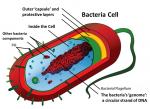|
This section contains 1,117 words (approx. 4 pages at 300 words per page) |

|
Infectious diseases depend on the interplay between the ability of pathogens to invade and/or proliferate in the body and the degree to which the body is able to resist. If the ability of a microorganism to invade, proliferate, and cause damage in the body exceeds the body's protective capacities, a disease state occurs. Infection refers to the growth of microorganisms in the body of a host. Infection is not synonymous with disease because infection does not always lead to injury, even if the pathogen is potentially virulent (able to cause disease). In a disease state, the host is harmed in some way, whereas infection refers to any situation in which a microorganism is established and growing in a host, whether or not the host is harmed.
The steps of pathogenesis, the progression of a disease state, include entry, colonization, and growth...
|
This section contains 1,117 words (approx. 4 pages at 300 words per page) |

|


